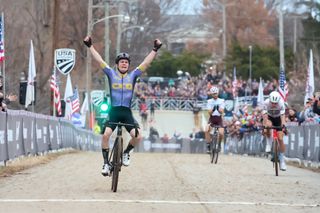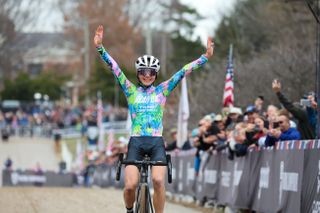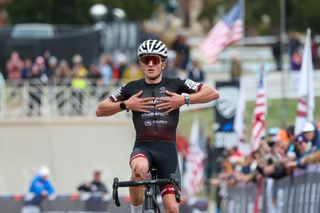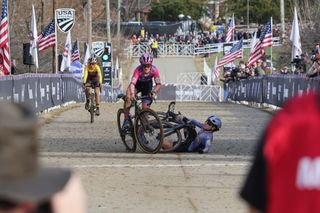Amstel Gold Race 2021 – Preview
No van der Poel but Van Aert and Alaphilippe clash as spring Classics head towards the Ardennes
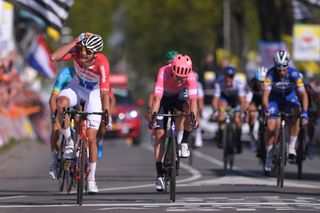
The usual labyrinthine route across Limburg hill country has been replaced by repeated laps of a circuit in the hinterland of Valkenburg but Amstel Gold Race returns to the spring Classics calendar in 2021 with many of its salient features still intact.
COVID-19 restrictions mean that there will be no wall of noise to greet the riders as they make their way up the Cauberg on Sunday with crowds banned from watching the race, but by day’s end, the riders will still have tackled a course that, statistically at least, largely meets the Dutch Classic’s required specifications: 219km, 38 hills, over 3,000 metres of climbing and more bends in the road than anyone could care to count.
This year’s race takes place on a 16.9km circuit featuring the Geulhemmerberg, the Bemelerberg and the Cauberg, all east of Maastricht. It bears distinct echoes of both the 1998 and 2012 World Championships courses, although the organisers have tacked on an altered final lap that skips the Cauberg ahead of the finish in Berg en Terblijt.
That variation is in keeping with the recent history of Amstel Gold Race, which has weaned itself off the Cauberg-centrism that made for some rather predictable editions between 2003 and 2012. When it finished atop the Cauberg, Amstel Gold Race tended, like Flèche Wallonne, to feel a little too much like one long preamble to an explosive final kilometre. Shifting the finish line a couple of kilometres past the summit in 2013 opened the race up considerably and, encouraged by the relative success of that experiment, the organisation became more adventurous in 2017, positioning the Bemelerberg as the final climb ahead of a flat final 7km.
The revised finale arguably produced the most entertaining editions of Amstel Gold Race this century, and in 2019, it almost certainly provided the most dramatic denouement in the event’s history, when Mathieu van der Poel bent the race to his will with a breathless pursuit-cum-sprint. Small wonder, then, that the Bemelerberg remains the final climb for this year’s novel edition of the race.
Van der Poel is an absentee this Sunday, however, having placed his road bike aside for the time being to focus on his preparation for the mountain bike event at the Tokyo Olympics, but there is, as ever, no shortage of star power on show for what has – geography be damned – come to be considered the opening instalment of the Ardennes Classics.
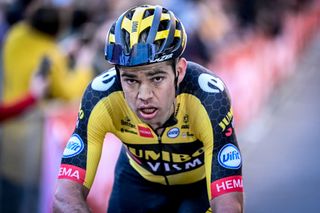
The contenders
The heuvelland of Limburg are not the Ardennes, of course, and the shorter climbs in this postage stamp of Dutch soil help Amstel Gold Race serve as a point of confluence between riders who are signing off after a full Flemish campaign and men with designs on success across the Meuse in Wallonia later in the week.
Wout van Aert (Jumbo-Visma) was due to complete his Classics schedule at Paris-Roubaix but the postponement of the Hell of the North convinced him to press on for one more weekend. The Belgian has all the tools to win this – or just about any – race, but he gave the impression of a man running on fumes come the finale of the Tour of Flanders.
Brabantse Pijl on Wednesday will give an indication of whether he benefited from a rare weekend off. In any case, he certainly isn’t the only option in a strong Jumbo-Visma squad that will include Primoz Roglic and Jonas Vingegaard who dominated at Itzulia Basque Country.
Julian Alaphilippe (Deceuninck-QuickStep) never quite hit his stride on the cobbles this Spring, but the world champion has always stressed that his Classics campaign stretches all the way to Liège-Bastogne-Liège. He will hope to reach a peak at La Doyenne, where he has some unfinished business, but he might well be good enough to win here. The debut of Mauri Vansevenant, who beat a quality field to win GP Industria & Artigianato and impressed in the Basque Country will be worth following closely.
Although Max Schachmann (Bora-Hansgrohe) made a rare misstep on the frenetic final stage of Itzulia Basque Country, the German had looked sharp early in the week and, of course, in winning his second successive Paris-Nice last month. He will surely be a factor on Sunday, the first part of one of the most important weeks of his season.
Another man bubbling under in the Basque Country was Jakob Fuglsang (Astana Premier Tech), who knows he frittered away a shot at victory in the company of Alaphilippe two years ago. Marc Hirschi has been a low-key presence since his switch to UAE Team Emirates, but he will set out with a leadership role on Sunday, while Matteo Trentin offers an alternative in the event of a group finish.
Michael Matthews (BikeExchange) fell short on the cobbles, but this is perhaps the Classic that suits his talents best, even if he hasn’t shone as brightly here since the move away from the Cauberg. After a low-key cobbled campaign, Team DSM will hope Tiesj Benoot and Søren Kragh Andersen can click, though a stronger collective threat might come from Ineos, who field 2015 winner Michal Kwiatkowski, Tom Pidcock, Richard Carapaz, Eddie Dunbar and Jhonatan Narvaez.
Other past winners in the field include Roman Kreuziger (Gazprom-RusVelo) and Michael Valgren (EF Education-Nippo), although some of the Dane’s teammates – such as Magnus Cort and Sergio Higuita – have been more prominent in recent weeks. David Gaudu (Groupama-FDJ) was a notable performer at Itzulia Basque Country, though this race suits his talents rather less obviously than Flèche or Liège.
Tim Wellens (Lotto Soudal), Warren Barguil (Arkéa-Samsic), Dylan Teuns (Bahrain Victorious) and Matej Mohoric (Bahrain Victorious) ought to be aggressive, Simon Clarke (Dimension Data) should be reliable, and cobbles men like Greg Van Avermaet (AG2R-Citroën) and Jasper Stuyven (Trek-Segafredo) will look to wring one last performance out of a long Spring.
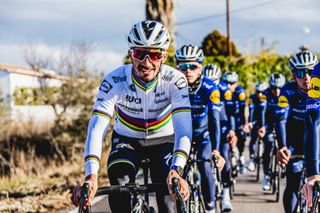
The course
Usually the most complicated route on the Spring calendar, this scaled-back Amstel Gold Race is rather more straightforward to describe.
The principal, 16.9km circuit, covered twelve times, features three climbs: the Geulhemmerberg (1km at 5 per cent), the Bemelerberg (900m at 4.5 per cent) and the Cauberg (800 metres at 6.5 per cent, with a maximum of 12 per cent).
For the thirteenth lap, 16km in length, the race plots a slightly different course, taking in the Geulhemmerberg and Bemelerberg but eschewing the Cauberg. The summit of the Bemelerberg comes a little over 7km from the finish in Berg en Terblijt.
As Van der Poel demonstrated in 2019, a lot can still happen after the Bemelerberg. In his absence on Sunday, and on a shortened course, closed off to crowds, Amstel Gold Race has rarely felt as open.
Get The Leadout Newsletter
The latest race content, interviews, features, reviews and expert buying guides, direct to your inbox!

Barry Ryan was Head of Features at Cyclingnews. He has covered professional cycling since 2010, reporting from the Tour de France, Giro d’Italia and events from Argentina to Japan. His writing has appeared in The Independent, Procycling and Cycling Plus. He is the author of The Ascent: Sean Kelly, Stephen Roche and the Rise of Irish Cycling’s Golden Generation, published by Gill Books.
Most Popular
Latest on Cyclingnews
-
US Cyclocross Nationals: Andrew Strohmeyer wins first elite men's title in three-rider sprint
Eric Brunner takes silver medal one second back while Scott Funston earns another bronze -
US Cyclocross Nationals: Vida Lopez de San Roman's gamble to compete in elite women's race pays off with victory
18-year-old out-battles Katie Clouse for stars-and-stripes -
US Cyclocross Nationals: Henry Coote surprises men's U23 field with solo victory
Ivan Sippy second and Jack Spranger third in Louisville -
US Cyclocross Nationals: Katherine Sarkisov crashes at finish line with Cassidy Hickey to win chaotic U23 women's race
Two-up sprint leads to crash and relegation for Hickey, with mountain bike specialist Makena Kellerman taking silver
